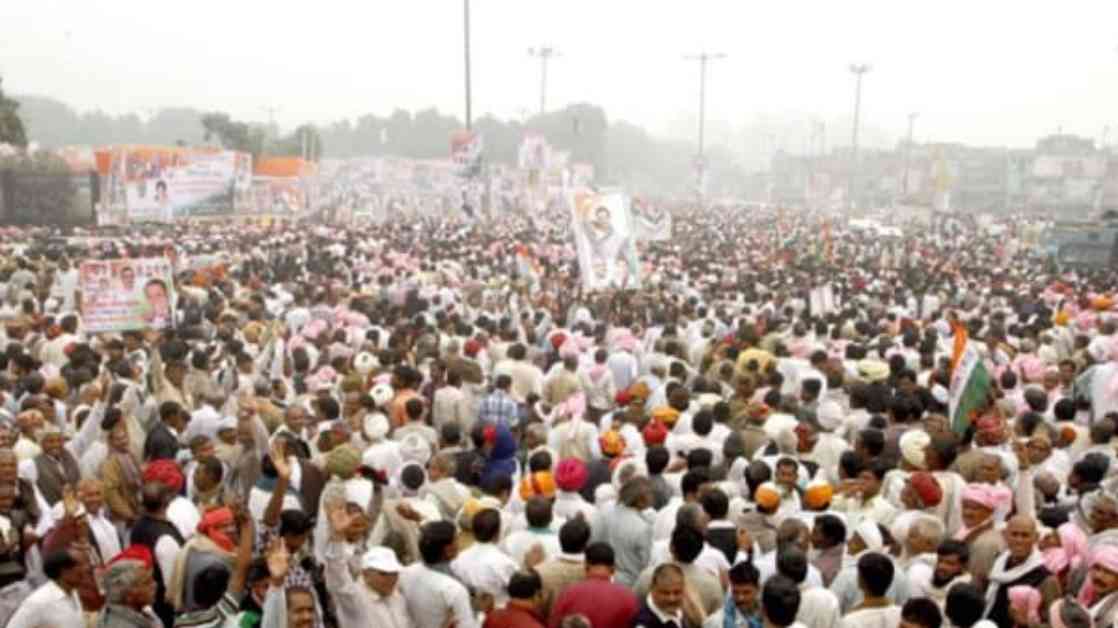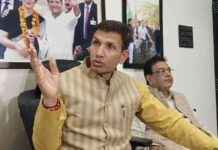Senate Democratic leader Chuck Schumer faced a challenging decision amid the looming threat of a government shutdown, navigating a delicate balance between party unity and political strategy. In a bid to avoid a disruptive shutdown, Schumer’s move to drop his threat and allow a Republican spending bill to pass sparked outrage and frustration among the Democratic base, who viewed it as a retreat in the face of President Donald Trump’s policies. The backlash was swift, with key figures like Speaker Nancy Pelosi and Senator Patty Murray openly criticizing Schumer’s decision, setting the stage for internal conflict within the Democratic Party.
Schumer’s Controversial Decision
Despite the backlash, there was no immediate sign of a broader revolt against Schumer’s leadership. Many senators acknowledged the difficult position he was in and commended him for taking a pragmatic approach to prevent a government shutdown. Senator John Hickenlooper of Colorado praised Schumer’s willingness to make tough decisions, highlighting the challenging role of leadership in times of crisis. However, Schumer emerged from the shutdown showdown as a leader facing internal dissent and uncertainty about the party’s direction in the era of Trump’s presidency.
Senator Murray, a prominent Democrat, criticized the lack of Democratic input in the spending bill and expressed frustration over the party’s perceived capitulation to Republican demands. Her remarks underscored the growing discontent within the party ranks over Schumer’s handling of the situation. Pelosi also voiced her disapproval of Schumer’s decision, labeling it as “unacceptable” and highlighting the broader implications of avoiding a shutdown.
Strategic Calculations and Fallout
Schumer’s cautious approach to governance and his focus on long-term political gains were evident in his decision-making process. Drawing from past experiences, such as the failed shutdown over protections for immigrant children and the critique of passing the Affordable Care Act, Schumer weighed the risks and benefits of a potential shutdown. His concerns about the consequences of a shutdown, including Trump’s unchecked power to slash government programs, informed his ultimate choice to avert a crisis.
While some Democratic leaders, like Senator Ruben Gallego, called for a review of Schumer’s decision and emphasized the need to learn from the experience, others defended Schumer’s pragmatism in diffusing a potentially damaging situation. Senator John Fetterman of Pennsylvania highlighted the challenges of navigating a shutdown strategy and the lack of a viable exit plan, pointing to the complexities of dealing with a Republican-controlled government.
In the aftermath of Trump signing the funding bill and the resolution of the shutdown threat, the Democratic Party found itself at a crossroads, grappling with internal divisions and questions about its future direction. Progressive voices, including Representative Alexandria Ocasio-Cortez and Representative Ritchie Torres, criticized Schumer’s approach as conceding ground to the GOP without securing tangible gains for the party. The tension between pragmatism and principle underscored the broader debate within the Democratic Party about its role in the current political landscape.
As the dust settled on the shutdown saga, Schumer’s leadership faced renewed scrutiny and challenges from within his own party. The fallout from the conflict highlighted the complex dynamics at play in Washington, where political calculations often collide with ideological principles. Schumer’s decision to avoid a shutdown may have averted an immediate crisis, but it also exposed the fault lines within the Democratic Party and raised questions about its ability to navigate the turbulent waters of Trump’s presidency.
The article was originally published on March 16, 2025, by Bloomberg and highlighted the internal strife within the Democratic Party following Schumer’s retreat on the shutdown threat. As the party grappled with the aftermath of the showdown, questions lingered about its unity, strategy, and future direction in a politically charged environment.


























